POLITICS
Bolsonaro struggles to sway Brazil’s poor voters with aid
Published
2 years agoon

ARAÇUAI, Brazil (AP) — After Brazilian President Jair Bolsonaro boosted welfare payments in August by 50%, many people in the Jequitinhonha Valley, one of the poorest regions of the country, felt they could once again afford some meat, keep electricity running and repair leaky roofs.
Even if it was an obvious election-year gambit, needy Brazilians are grateful for the extra 200 reais ($38) per month — but perhaps not enough to switch their political allegiance to the far-right leader in large numbers.
Bolsonaro has struggled to gain support among the poor, but with less than two weeks to go before a runoff vote against former President Luiz Inácio Lula da Silva — the leftist front-runner — he is betting the bump in welfare will pay off.
In the Jequitinhonha Valley’s impoverished city of Aracuai, part of the northern Minas Gerais state that has been a bellwether for presidential races, it is hard to find a single voter who flipped their support to Bolsonaro because of the bigger welfare payments.
Before sunrise at a state-owned bank where people waited to collect their aid, many said they voted for da Silva in the first round of voting on Oct. 2 and planned to do so in the Oct. 30 runoff. Some said they knew someone who planned to switch to Bolsonaro in the runoff or were considering it.
“Some people are that easy when they’re in dire straits,” said 60-year-old housekeeper Luzia Martins. “But I don’t sell my conscience.”
In the first round of this year’s presidential election, national results matched those of the state. Da Silva — known throughout Brazil as Lula — got 48% of the vote and Bolsonaro received 43%. The remainder was split among other candidates and will be up for grabs in the runoff.
At Bolsonaro’s urging, Brazilian lawmakers declared a state of emergency in July, waiving a constitutional cap on spending to allow about $7.6 billion in additional welfare benefits, plus a subsidy for cooking gas and assistance for truck and taxi drivers.
The extra government aid to nearly a quarter of Brazil’s population may not sway many voters to switch sides. But political scientists say the Bolsonaro campaign is hoping it might placate a sizable number so that they abstain from voting. Abstention rates are already higher among poor voters.
In 2003, then-President da Silva brought his entire Cabinet to the Jequitinhonha Valley, saying he wanted his ministers to see extreme poverty up close. The leftist chose the region of 1 million people to launch an anti-hunger program that was incorporated in an even bigger welfare package that lifted tens of millions out of poverty, winning him and his Workers’ Party loyalty for years.
But a decade later, Brazil’s economy slipped into its deepest recession in a century. Then, after a few years of meager growth, the COVID-19 pandemic caused another severe downturn.
A recovery in 2022 has brought unemployment to its lowest level since 2015, but many people are subsisting on informal, occasional jobs, and soaring inflation has left families struggling to pay for food and other basic needs. Thirty-three million Brazilians were hungry in the six months through April, according to a study by several nonprofit organizations, including Oxfam.
Across Araçuai, bare-brick homes are unfinished; many are abandoned. Some people who go downtown to pick up donated food and clothing can’t afford bus fare, so they make the multi-hour trek on foot.
Bolsonaro’s Brazil Aid welfare program, built upon da Silva’s flagship Family Aid program, has helped people get by. First-round results show it helped Bolsonaro win some votes in the Jequitinhonha Valley, said Carlos Ranulfo, a political scientist at Federal University of Minas Gerais.
In advance of this month’s runoff, both Bolsonaro and da Silva have traveled around Minas, and da Silva is expected to visit Friday.
“This is a vastly pro-Lula, pro-Workers’ Party stronghold, but Bolsonaro indeed made inroads with his welfare,” said Sergio Vasconcelos, a former city councilor and now spokesperson for Araçuai’s center-right mayor.
Political scientists say part of Bolsonaro’s better-than-expected performance in the region can be traced to the fact that some da Silva supporters who are registered in Minas moved elsewhere for better economic opportunities and so didn’t cast votes. Others are just disaffected and disconnected altogether.
Cláudio Gonçalves, 64, won’t be casting a ballot. Living alone in Jequitinhonha’s countryside, he has no phone, doesn’t watch television and spends most of his day caring for his pets. At night, he walks an hour to the local bar to sip beer under the starry sky.
“I’ve heard people say this guy is better, that guy is better … But I don’t really pay attention,” Gonçalves said as he gazed into the night. “This valley is as poor as when I was born.”
Ranulfo, the political scientist, said he doubts abstention rates and Bolsonaro’s traction with some poor voters will be enough for the far-right president to clinch victory.
Like many people in Araçuai, Aglete Batista, 32, uses her welfare to pay outstanding debts with local grocers. Her family uses a wood stove to cook mostly noodles, rice or beans because they can’t afford propane.
A Lula sticker is the sole decoration at their shack that’s surrounded by dirt and mud. Adults sit on a couch outside while naked, dust-covered children play not far from a pit latrine.
The larger welfare payments from the Bolsonaro government have helped the family seal their roof so that rain no longer soaks one of their two beds, and to pay a two-month-old electricity bill to keep their rusty refrigerator and fan running to cope with the blazing heat.
“I don’t like Bolsonaro, but it is obvious that this handout is key for us to survive,” Batista said. “Some people here feel they need to help Bolsonaro. They are too young to remember the help and the handouts we had during the Lula years. I remember.”
During a debate on Sunday both candidates said that if they are elected the higher welfare payments, which are scheduled to end in December, will become permanent.
“We will keep that extra expenditure permanently and for life,” Bolsonaro said. To which Lula responded: “We will fix this country so we can have some barbecue, have some beer on the weekend.”
Bolsonaro’s few outspoken supporters in the Jequitinhonha Valley are enthusiastic about the welfare payments. Maria do Carmo, 64, said her vegetable stall business has benefited since residents were given more cash.
“I’m not saying these people should get free money forever; they need to work. But it is a temporary solution that helps us, too,” said do Carmo, 64, whose daughter is a pro-Bolsonaro city councilor.
POLITICS
Erdogan election defeat would be ‘revenge’ – Syrian Kurds
Published
12 months agoon
May 23, 2023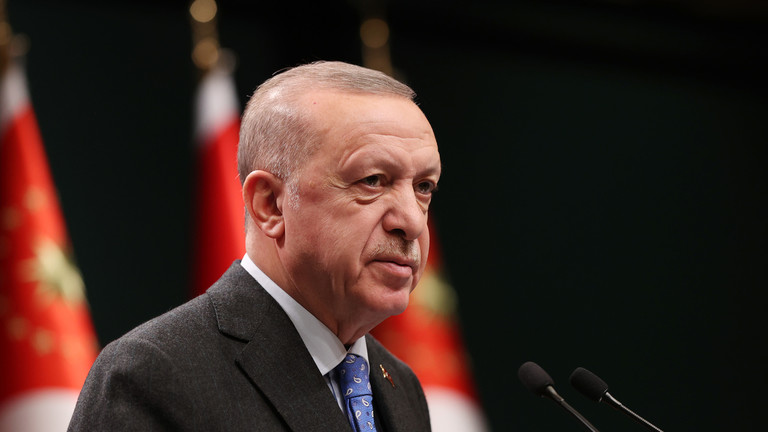
The YPG claims the Turkish president failing to win another term would be payback for Ankara’s counter-terrorism operations in Syria
President Recep Tayyip Erdogan’s defeat in this month’s presidential election would serve as “revenge” for Türkiye’s military operations in Syria, a top official of the People’s Defense Units (YPG) has said.
Salih Muslim, one of the leaders of the YPG — a Syrian militant group affiliated with the Turkish Kurdistan Workers Party (PKK) and designated by Ankara as a terrorist organization — said in an interview with Medya Haber Kurdish TV channel that his organization has grown frustrated with Türkiye’s counterterrorism operations ongoing in the northern part of Syria since 2016, Daily Sabah reported.
“Now, we have an opportunity in our hands,” Muslim said, stressing that the YPG is eager to see Erdogan unseated. “It’s the first time we have such a thing happening in elections.” He added that “If we can win at the ballot box, we will take all the revenge from [the defeat of] one person.”
Muslim’s statement comes as several members of the YPG and the PKK have openly expressed support for Erdogan’s main challenger, Kemal Kilicdaroglu, as the two head into a runoff election on May 28. In the previous round, held on May 14, both candidates failed to secure an outright majority with Erdogan gaining just over 49.4% of the vote while Kilicdaroglu received 44.96%.
Kilicdaroglu has vowed to mend Ankara’s relations with NATO and revive Türkiye’s EU membership talks, which have been effectively stalled since 2016. He has also accused Russia of spreading “conspiracies” and “deep fakes” apparently referring to footage circulating online purportedly linking him to the PKK, and told Moscow to get its “hands off the Turkish state.” Russia has rejected the accusations.
Somalis cheer on Türkiye’s Erdogan to win re-election
Erdogan has repeatedly accused his rival of “colluding with terrorists” and threatening to undo Türkiye’s achievements in its war on terror. He has also blasted Kilicdaroglu for trying to “detach” the country from Russia.
Türkiye has been waging low-intensity warfare against Kurdish militias along its Syrian and Iraqi borders for four decades, in a back-and-forth campaign that has claimed the lives of over 40,000 people.
The PKK and its affiliates have been waging an insurgency since 1984 demanding political and cultural autonomy with the final goal of establishing an independent Kurdish State, laying claim to territories in southeast Türkiye and northern parts of Iraq and Syria.
You can share this story on social media:
PLEASANT MUSIC FOR YOUR CAFE, BAR, RESTAURANT, SWEET SHOP, HOME
SUITABLE MUSIC FOR YOGA LOVERS
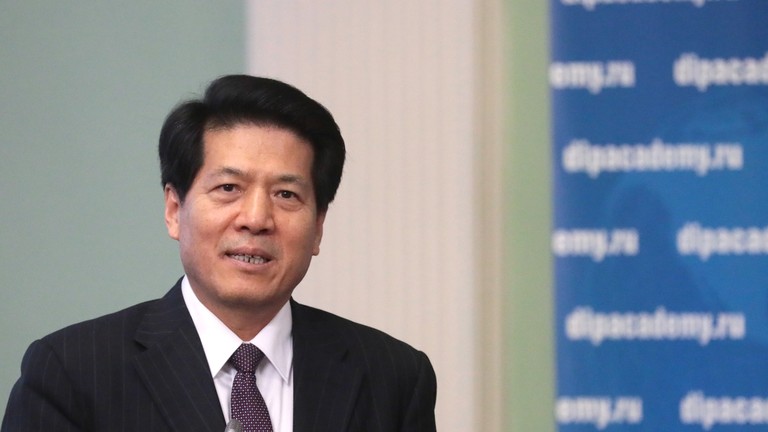
Li Hui visited Kiev to share Beijing’s views on a political settlement to the Ukraine crisis
Ukrainian President Vladimir Zelensky has met with China’s newly appointed special envoy for Eurasian affairs, Li Hui, who traveled to Kiev to convey Beijing’s views on a diplomatic resolution to Ukraine’s conflict with Russia.
According to a statement published on Thursday by the Chinese Foreign Ministry, Li held talks with Zelensky as well as the head of the Ukrainian President’s Office, Andrey Yermak, Foreign Minister Dmitry Kuleba, and representatives from several other ministries.
Beijing said both sides had agreed that the recent phone call between Chinese President Xi Jinping and Zelensky had outlined the direction for future relations between their two nations, which it stated should be built on mutual respect and sincerity.
During his trip, Li reiterated that Beijing is willing to serve as a peace broker to help reach a political resolution to the conflict with Russia, based on the principles outlined in a 12-point roadmap published by China in late February.
“There is no panacea in resolving the crisis. All parties need to start from themselves, accumulate mutual trust, and create conditions for ending the war and engaging in peace talks,” Li said, according to the Chinese Foreign Ministry’s statement.
The special envoy’s two-day trip to Ukraine is the first leg of a wider European tour, during which he is expected to visit Poland, France, Germany, and Russia. Beijing has explained that the trip aims to promote communication toward “a political settlement of the Ukraine crisis.”
Hungary backs Chinese plan for Ukraine
China’s peace efforts have been welcomed by Russia as well as some European nations such as Hungary, and have been praised for acknowledging the national interests of both parties.
The roadmap, however, has been criticized by some in the West. NATO Secretary General Jens Stoltenberg claimed that China lacked “credibility” as it has refused to condemn Russia’s actions in Ukraine. EU foreign policy chief Josep Borrell insisted that “the only thing that can be called a peace plan is Zelensky’s proposal.”
The Ukrainian president has demanded that Russia must withdraw from territories that Kiev claims as its own, as well as pay war reparations and face an international tribunal. The Kremlin has dismissed the initiative, claiming it does not take into consideration “the realities on the ground,” including the new status of four former Ukrainian regions as part of Russia.
You can share this story on social media:
PLEASANT MUSIC FOR YOUR CAFE, BAR, RESTAURANT, SWEET SHOP, HOME
SUITABLE MUSIC FOR YOGA LOVERS
POLITICS
Pakistan’s top court orders release of former PM Imran Khan
Published
1 year agoon
May 12, 2023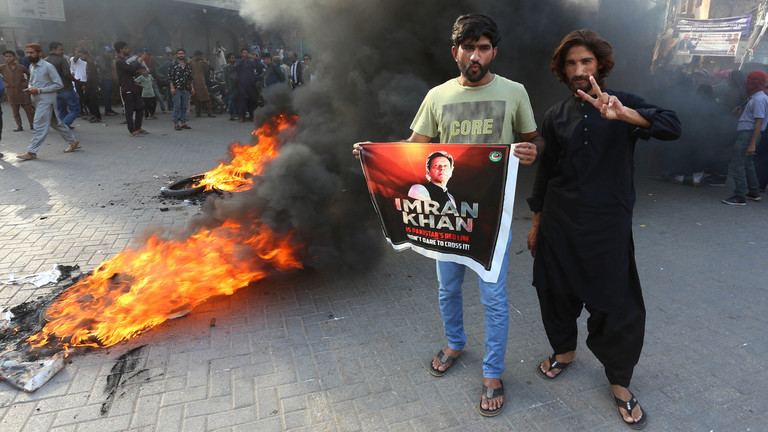
Pakistan’s Supreme Court has ordered the release of former prime minister Imran Khan, whose arrest earlier this week triggered deadly protests across the country, Geo TV news channel has reported.
The court considered an appeal by Khan’s legal team on Thursday, ruling that the arrest of the opposition figure was illegal, according to the broadcaster.
The leader of the Pakistan Tehreek-e-Insaf (PTI) party was detained on an order from the National Accountability Bureau (NAB) on Tuesday as soon as he arrived at a lower court in connection with a graft case against him. He has been held at a police compound in the capital, Islamabad, since then.
Khan’s spokesperson told Al Jazeera that the 70-year-old was apprehended in court before he could even appear before the judges, which was “in violation of all laws.” The PTI party claimed that it was not an arrest, but “an abduction,” and called on its supporters to take the streets.
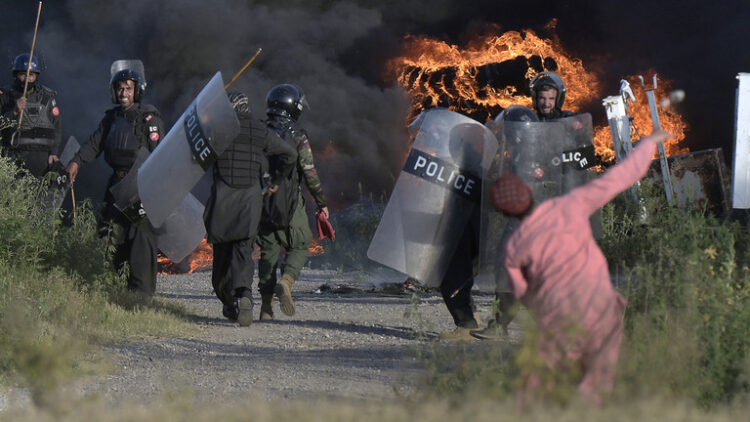
Pakistan deploys army after Imran Khan’s arrest
Pakistan has been gripped by violent protests for the last three days, with demonstrators clashing with security forces and setting government buildings on fire in major cities across the country. The government of Prime Minister Shehbaz Sharif has deployed the military in an attempt to curb the unrest.
Some 2,500 of Khan’s supporters, including some top figures in his party, have been arrested so far. Local media have reported at least 11 protesters killed and hundreds of police officers wounded.
Numerous criminal cases have been launched against Khan since his removal from office after a no-confidence vote in April 2022. The PTI leader, who remains highly popular in the country, denies all accusations against him.
The politician claimed a year ago that he had been deposed as a result of a US-led “international conspiracy” and accused his opponents of receiving money from foreign forces.
Khan has been making active attempts to return to power since then, staging massive rallies across the country. The former premier survived an assassination attempt last November, escaping with a non-life-threatening leg wound after several bullets were fired at him.
You can share this story on social media:
PLEASANT MUSIC FOR YOUR CAFE, BAR, RESTAURANT, SWEET SHOP, HOME
SUITABLE MUSIC FOR YOGA LOVERS



Global debt balloons to record highs

German military to sell tons of toilet paper

First female Saudi astronaut heads to space

Nigeria takes step to combat fuel shortages

US will default if debt deal fails – treasury secretary

Village People demand Trump stop using their music

Hollywood star pulls out of hosting awards show amid strike

Rock icon slams German authorities

Agatha Christie novels chopped by ‘sensitivity readers’ – media

Marvel star back in training after breaking over 30 bones

Turkish minister escapes fire blast (VIDEO)

Trump savages pop star’s Super Bowl performance

Alec Baldwin sued by Ukrainian family of slain cinematographer

Duran Duran stumbles, Dolly Parton rolls into Rock Hall

Sweden probes possible plot behind Russian pipeline leaks

FINANCE


Global debt balloons to record highs
It’s now $45 trillion higher than its pre-pandemic level and is expected to continue growing rapidly, a top trade body...


Nigeria takes step to combat fuel shortages
The West African country has built a giant oil refinery to cover domestic demand Nigeria will commission its new Dangote...
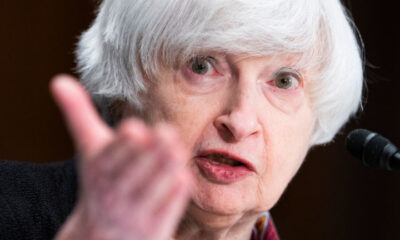

US will default if debt deal fails – treasury secretary
The current borrowing limit is a constraint on Washington’s ability to meet its obligations, Janet Yellen insists America’s chances of...


Facebook parent Meta fined €1.2 billion by Irish watchdog
The American tech company has been accused of violating EU data privacy rules US tech giant Meta has been hit...


UK’s business with sanctioned country booming
Trade between Britain and Iran has reached the highest level in a decade, according to official data, apparently having been...

POLITICS


Erdogan election defeat would be ‘revenge’ – Syrian Kurds
The YPG claims the Turkish president failing to win another term would be payback for Ankara’s counter-terrorism operations in Syria...


Chinese special envoy meets with Zelensky
Li Hui visited Kiev to share Beijing’s views on a political settlement to the Ukraine crisis Ukrainian President Vladimir Zelensky...


Pakistan’s top court orders release of former PM Imran Khan
Pakistan’s Supreme Court has ordered the release of former prime minister Imran Khan, whose arrest earlier this week triggered deadly...
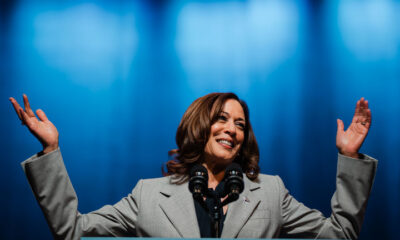

Kamala Harris to run AI taskforce
The US vice president will ask AI execs to evaluate the safety and fairness of their models US Vice President...
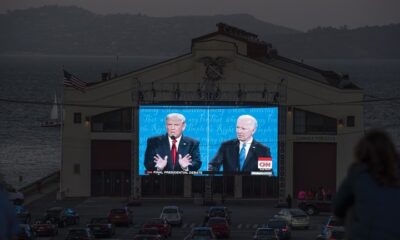

Most Americans want to move on from Biden and Trump – poll
70% of respondents said the incumbent shouldn’t bid for office in 2024, with that figure 60% for the Republican former...

OPINION


Disgraced ex-PM Liz Truss seeks to ruin any hopes for normal UK-China ties
The former premier’s Taiwan trip is nothing but a provocation for Beijing to lash out at London, sinking any constructive...


India facing challenge to steer SCO agenda away from Western-dominated frameworks
The Shanghai Cooperation Organisation is looking at ways to address the most pressing global issues without being a disruptive influence...


China isn’t the biggest threat to Italy’s prosperity
Rome is considering leaving the Belt and Road Initiative in a move which will place virtue signaling to other Western...


Meet the Czech lawyer who rallies thousands to shake up the EU establishment
In mid-April, a fledgling political party that recently formed in the Czech Republic called Pravo Respekt Odbornost (Law Respect Expertise;...


UK shows signs of good will to China, but it’s not the one calling the shots in this relationship
The British foreign secretary says antagonizing Beijing goes against London’s ‘national interests’, but Washington has other ideas British Foreign Secretary...

LIFE


conic Smiths bassist dies aged 59
The bassist with legendary English rock band The Smiths, Andy Rourke, has died at the age of 59, the group’s...


Village People demand Trump stop using their music
A viral video emerged last week of Donald Trump dancing to a Village People song at his Florida estate Village...


Hollywood star pulls out of hosting awards show amid strike
Drew Barrymore is stepping down as host of this year’s MTV Movie & Music Awards, due to be held on...
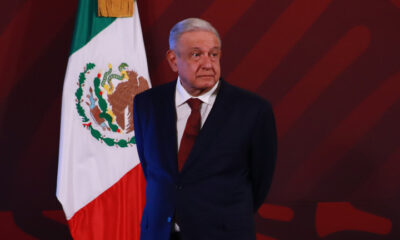

Mexico condemns US ‘interference’ in drug war
The DEA’s infiltration of the Sinaloa Cartel without state permission amounts to espionage, the Mexican president says Mexican President Andres...
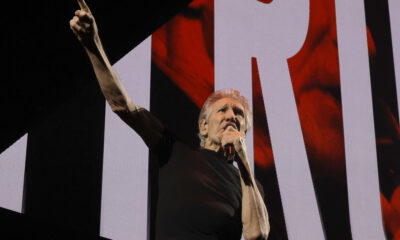

Rock icon slams German authorities
Pink Floyd co-founder Roger Waters criticized the city of Frankfurt for canceling his concert and vowed to take legal action...



Trending
-

 FINANCE12 months ago
FINANCE12 months agoFacebook parent Meta fined €1.2 billion by Irish watchdog
-

 LIFE12 months ago
LIFE12 months agoconic Smiths bassist dies aged 59
-
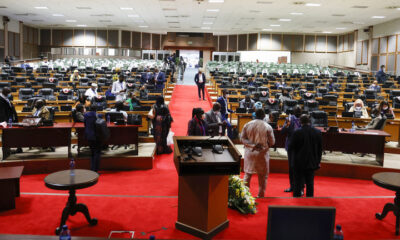
 NEWS12 months ago
NEWS12 months agoKenya supports creation of pan-African court
-

 FINANCE12 months ago
FINANCE12 months agoUS will default if debt deal fails – treasury secretary
-

 FINANCE12 months ago
FINANCE12 months agoGlobal debt balloons to record highs
-
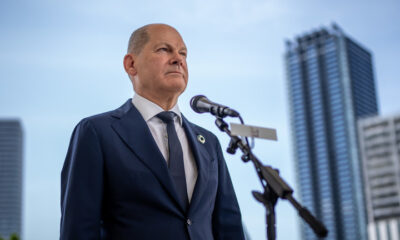
 WAR12 months ago
WAR12 months agoUkraine won’t join NATO anytime soon – Scholz
-

 NEWS12 months ago
NEWS12 months ago‘Subway killer’ Daniel Penny’s actions expose a gap in US law enforcement
-

 NEWS12 months ago
NEWS12 months agoGerman military to sell tons of toilet paper



